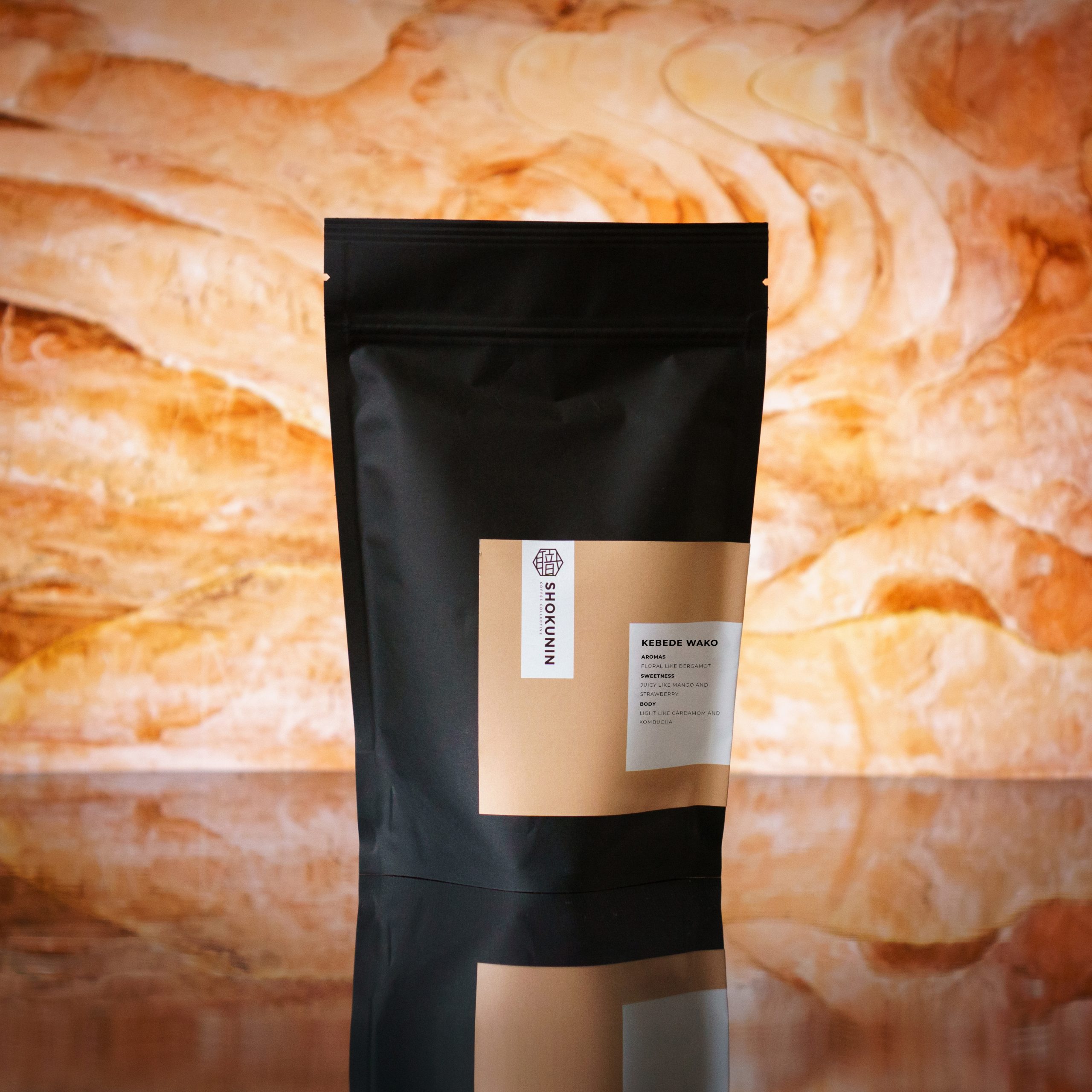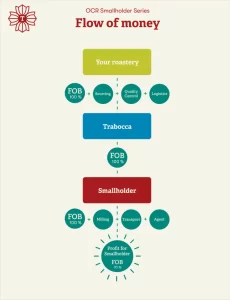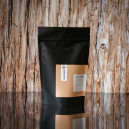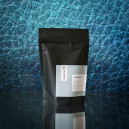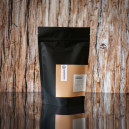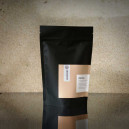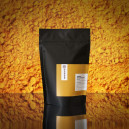Kebede Wako
Single producers like Kebede are rare in Ethiopia, where most coffee is produced through cooperatives. This natural lot is part of the 2025 Operation Cherry Red Smallholder Series facilitated by Trabocca, traceable to a single farm in Chelbesa; one of Yirgacheffe’s most renowned coffee-growing areas.
Region: Yirgacheffe, Ethiopia
Altitude: 2010-2056 m.a.s.l
Variety: Kurume, Welicho, 74110, 74112
Processing: natural
Additional information
| Weight | N/A |
|---|---|
| Region | Galeh, Jimma, Oromia, Ethiopia |
| Altitude | 1,840 – 2,130 m.a.s.l. |
| Variety | Local varieties 74165, 75227, 74140, 74110, 74112 and 5227 |
| Processing | Natural, dried on raised beds |
| Flavour | Full, sweet aromas like black tea and passion fruit. Deep sweetness like melon and strawberry jam. Smooth, creamy body like hazelnut ice cream |
Jelle's Notes
I’ve been wanting to add more Ethiopian coffees to the lineup for a while, and Trabocca felt like the right partner for this. I know them through their work with Ethiopian producers, which led me to Suke Quto, and I’ve always appreciated their initiatives; from the first biologically certified export coffees to their focus on traceability and quality.
For this coffee, their Operation Cherry Red program gave me a unique chance to source coffee right at its roots. It connects smallholders in Ethiopia directly to roasters, skipping the cooperative model and maximum traceability. That means I get to work directly with the farmer, which is the type of relationship I value. This is the first result of that collaboration, and I’m excited to see what comes out of it.
Producer
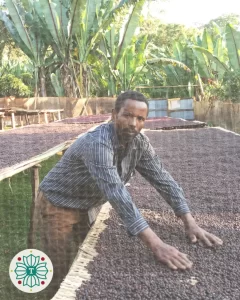 This lot comes from Kebede Wako, who runs a 16.45-hectare farm at high altitude in Chelbesa kebele, Yirgacheffe. The farm sits across from Danche Hill, a place with a reputation for high-quality coffee. Kebede farms with the help of his family, two wives and elder son Birhanu.
This lot comes from Kebede Wako, who runs a 16.45-hectare farm at high altitude in Chelbesa kebele, Yirgacheffe. The farm sits across from Danche Hill, a place with a reputation for high-quality coffee. Kebede farms with the help of his family, two wives and elder son Birhanu.
Although his farm is one of the largest in the 2025 OCR Smallholder Series, his family only began cultivating coffee here in 2000. That makes Kebede just the second generation to work this land. In 2018, they obtained an export license to sell directly to international buyers. It opened up new possibilities for fairer pricing, but the relationships proved hard to maintain. For the past two years, they’ve sold exclusively to the domestic Ethiopian market.
Now, through the OCR program, Kebede is ready to reconnect. He’s committed to producing high-quality natural coffees and building long-term relationships with roasters.
Each year, the farm produces 22.7 tons of specialty coffee. During harvest, Kebede hires seasonal workers to handpick ripe cherries and manage drying across 130 raised beds. Rain covers protect the coffee from humidity and cold nights. As daytime temperatures in Gedeb often rise above 30°C, Kebede is investing in shade nets to slow down and stabilize the drying process. It’s a step toward even more consistent lots.
Beyond coffee, he’s working toward buying a transport truck to move his coffee to Hawassa for pre-milling. He also dreams of building a family house in Dilla, a nearby city, to give his children better access to education.
Operation Cherry Red
Operation Cherry Red (OCR) is Trabocca’s initiative to build a more equitable coffee supply chain. It focuses on quality, sustainability, and traceability, making sure that premium payments reach the hands of the producers who deserve them.
Traditionally, Ethiopian smallholders sell cherries to local washing stations, where lots are blended and traceability is limited. OCR changes that. By helping farmers get export licenses and take charge of their own processing, milling, and shipping, Trabocca makes sure more of the final price ends up with the farmer. Instead of the usual 30 percent, they can now keep up to 70 percent of what the coffee sells for when it leaves Ethiopia.
The 2025 OCR Smallholder Series highlights unique coffees from individual producers like Girma. These lots are traceable, transparent, and impactful. For roasters, it’s a chance to source coffee at its roots and support long-term relationships that truly matter.
The program’s impact is already visible. Previous OCR auctions generated substantial premiums and helped producers improve their livelihoods.

